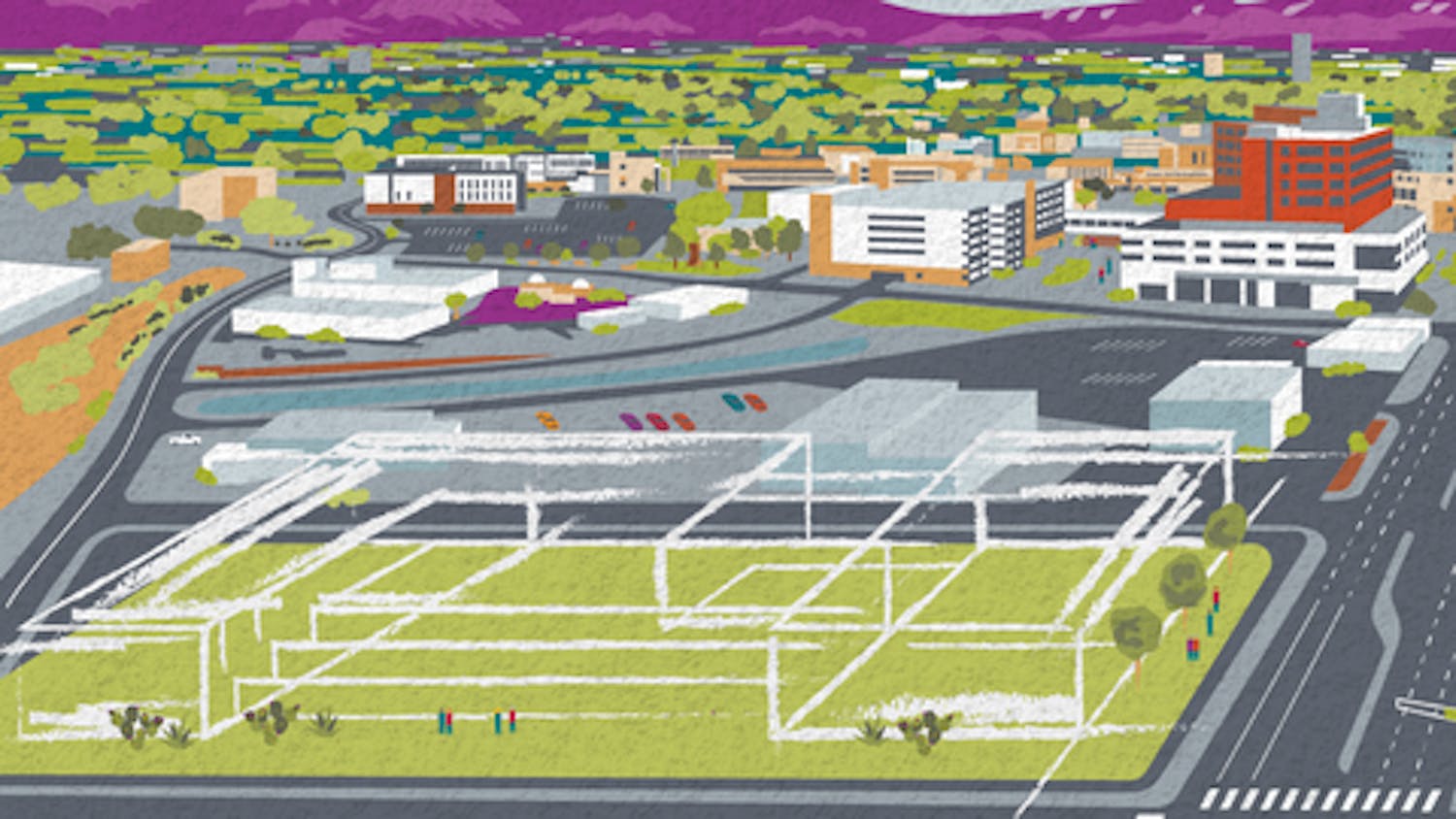The lush meadows of the Jemez Mountains were dotted with 18 tents on a sunny Saturday morning. Erica Dennison sat by the campfire as Ashley Sarracino braided her hair. Brian Mann sat on a log nearby, observing the setting.
Dennison, Sarracino and Mann are participants in the Tribal Resource Institute in Business, Engineering and Science program. They were participating in the program’s cultural campout and were getting ready to cook breakfast, then go on a mile hike up Battleship Rock to spend the day at a swimming hole.
The program, which is now in its fourth week, is sponsored annually by Native American Programs of UNM. This year, 30 American Indian students from across the country, all recent high school graduates who will be attending college this fall, are participating in the program. It is funded by the Council of Energy Resource Tribes.
The students live in the residence halls at UNM and attend a rigorous schedule of classes involving math, writing and tribal government curriculum. They are given college survival tips and guidance on how to ease the cultural transition and demands of college study. The academic experience is balanced with field trips, where students interact with tribal members and practice bonding activities, such as the cultural campout.
Dennison, from Gallup, belongs to the DinÇ Nation. She will be attending UNM in the fall and plans on majoring in biology. While Dennison said she found the cultural campout to be an amazing experience, she appreciated that the program affords an opportunity for American Indian youth to assume leadership roles by “basically, bringing out your culture and the person within you to have that burning desire to come back to your tribe and contribute,” Dennison said. “Right now, the way they’re helping us with that is the project that we’re given, LOBO Nation, where we create our own tribal government and we’re given certain committees and we have to make choices to protect and serve our fictional reservation.”
Program coordinator Tiffany Lee said the Council of Energy Resource Tribes is an environmentally-based organization, which is why the UNM program focuses participants on environmental issues.
Get content from The Daily Lobo delivered to your inbox
“Hopefully, when they leave, they have more awareness and also more interest in protecting and preserving environmental concerns in their community,” she said.
Lee said the program is more than academic preparation for college.
“One of the goals is for the students to sort of realize how they can be resources back to their community personally,” she said.
Sarracino, from the Laguna Pueblo in Casa Blanca, N.M., will be attending college this fall at Stanford University.
“I’m hoping to come back and go to medical school here after I get my degree at Stanford, and after I get my degree for medical school to go back to the tribe,” Sarracino said. “I’m hoping to either work at the hospital in Laguna or to start up my own hospital because the health care there isn’t efficient for the people in Laguna and it’s frustrating having to deal with that.”
Benny Shendo Jr. is the senior manager of Native American Programs at UNM. He was once a program participant and brought it to New Mexico from Colorado in 1993. He said students in the UNM program benefit from the proximity to several nearby pueblos, which allows students to visit native communities and tribal leaders.
Mann is from the Eastern Shoshone Nation in Fort Washakie, Wyo. He will be attending Rocky Mountain College in Montana, where he plans to study elementary education.
“I plan to go off and see the world and then go back to the reservation, but at first I want to live in a city, travel around the world and have new experiences,” he said.
Mann enjoyed the team-building exercises, such as the ropes course, held the first week.
“It’s the first weekend, we were all still trying to get to know each other, but by day’s end it was like we were all good friends,” he said. “We just needed the encouragement of the whole mountain center and ropes course, and from that we’ve grown as a team and more like a family and, after camping, it’s enhanced that.”





